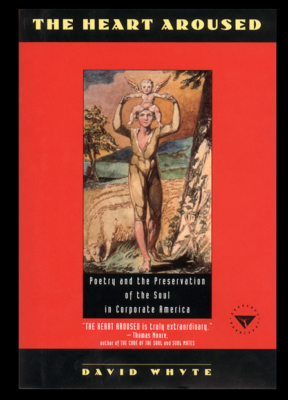 d
d
David Whyte remains close to me these days.
I’m not sure why. I find myself remembering, out of the blue, phrases and statements attributed to him. Like yesterday’s, “The antidote to exhaustion is wholeheartedness.” Or, “Sometimes the truth depends on a walk around the lake.”
Many of these phrases came to me many years ago. I’m in a period of searching, I think. Like many of us. A few layers down, even beyond the normal depth. Trolling the deep sea crevices. Periodically popping up for periscope view.
I don’t know David in person. I know and enjoy his writings and poetry. I have for the last twenty-five years. I love his invitation to both the exterior and to the interior.
In his 1994 book, The Heart Aroused, Whyte writes:
“The Heart Aroused attempts to keep what is tried and true, good and efficient, at the center of our present work life, while opening ourselves to a mature appreciation of the hidden and often dangerous inner seas where our passions and our creativity lie waiting.”
With most all of the people I’m working with, and living with, and communing with — these days, together, we are welcoming more heartfulness. More maturity. More willingness to sail the inner sea.
With work, it can’t just be a training. It must also be a retreat. It’s intolerable to fixate solely on the external.
With friends, we are quickly going to the rugged real, swearing and laughing together.
With community, it can’t just be time spent. It must also be genuineness as practice and at scale.
So many of us crave moments that are clear in connection, and with nothing hidden.
Heart. Aroused.
Humans. Being.
It makes a world of difference.
